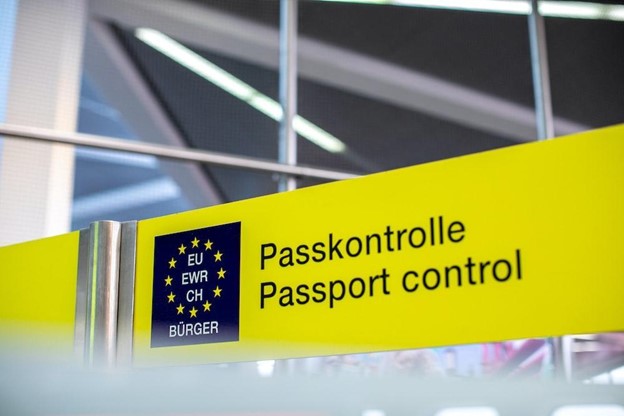Why is Citizenship better than TRC and Permanent Resident Card?

Every form of resident status in EU countries has its pros and cons. The ground for a particular choice depends on one’s financial position, duration of residency, and several other critical elements.
In this article, we will take a closer look at the pros and cons of citizenship, TRC, and PRC to help you understand which one is better for you personally. Furthermore, we will look at the various methods of getting an EU citizenship, TRC, and PRC to elaborate on the difference between them.
Why is EU Citizenship Better Than TRC Or Permanent Resident Card?
Temporary Resident Card of EU (TRC)
A TRC is a document that proves that the holder is a legal resident of an EU country for a specific period. After this period, the TRC will expire and the Immigrant will need to reapply for another one.
The main advantage of having a TRC is that it does not require its holders to reside in the EU for a certain period of time before applying. Moreover, TRC also gives the right to work in the country of residence during the validity period of the card.
PRC Advantages:
- Residing on legal terms in the EU state;
- Opportunity to use high level of medicine care;
- Ability to open offshore bank accounts in EU;
- Travel to EU states, without the permission to stay for a long time in any of them.
TRC Disadvantages:
- Valid for a limited period of time;
- Once it expires, the holder will need to reapply for another one, which can be a lengthy and costly process.
Permanent Resident Card of EU (PRC)
A PRC is a document that proves that the holder is a legal resident of an EU country. The main advantage of having a permanent resident card is that it gives the opportunity to travel to all EU countries, and a chance to live in European state. However, taking into consideration the basis for obtaining PRC, you will be allowed to live here with some restrictions, such as work without promotion to leadership positions or prohibition for living in another EU state as long as you want, etc.
PRC Advantages:
- Ability to move freely to other EU countries;
- Better chances of getting well-paid jobs;
- Access to the high level of healthcare;
- Access to better educational resources across EU countries for yourself, spouse, and dependents;
- Ability to open offshore bank accounts;
- Access to convenient tax conditions, especially in Caymans Islands.
PRC Disadvantages:
- Valid for a limited period of time;
- The holder needs to reside in the EU for a certain amount of time before being eligible to apply for PRC;
- It does not give the holder the right to work in EU.
EU Citizenship
Citizenship is the highest form of legal status that a person can have in an EU country. The passport gives the right to live and work in any EU country, as well as vote and get leadership positions at your current work. Furthermore, citizenship also comes with a number of other benefits, such as the right to travel freely within the European Union and access to free education and healthcare.
There are several ways to obtain passport in an EU country. However, different countries have different offers as well. For instance, Romania also offers citizenship by naturalization, repatriation, investment, etc.
Reviews all over the Internet suggest that immigration with the European passport which you can get by repatriation or investment is much easier.
Advantages:
- Gives the holder the right to live and work in any EU state;
- Right to travel freely within hundreds of countries;
- Gives access to free education and healthcare;
- Gives the right to get a loan or mortgage in the bank;
- The immigrant is able to vote and possess the leadership positions.
Disadvantages:
- Can be a lengthy and costly process (if you apply for EU citizenship by naturalization or investment).
Methods of Getting Citizenship
Let's say that you are trying to get Romanian citizenship. Here is an overview of some ways you can get it. The most common method is through naturalization, which requires that an individual live in the country for a certain period of time and meet other requirements. Other ways include marriage, repatriation, or investment.
Romanian Citizenship by Naturalization
Naturalization is the most common method of obtaining Romanian passport. In order to be eligible for naturalization, an individual must meet the following requirements:
- Be at least 18 years old;
- Have lived in the country for at least 8 years;
- Be able to speak Romanian;
- Pass the exam on history, culture, language knowledge;
- Have no criminal record;
- Be financially stable.
Citizenship of Romania by marriage can be registered faster, that regular naturalization procedure.
Romanian Citizenship by Repatriation
Citizenship of Romania can also be obtained by repatriation. In order to be eligible, the following requirements must be met:
- Prove that you have a territorial affiliation;
- Have an 18 years old;
- Have no criminal records;
- Pass the oath-taking ceremony.
The pros of the procedure are that it saves a great amount of time for the applicants, and lets them avoid the exam of history, culture and language.
Romanian passport by Investment
There is a couple of ways of getting passport by investment, which includes contribution in business, real estate, etc. However, it is important to note that with the investment, you will first get a residence. You will need to spend time in the country and meet other citizenship requirements to become a citizen.
Ultimately, your requirements to visit the country also dictate whether TRC, PRC or citizenship is better-suited. If you would like to learn more about the Romanian citizenship (or any other EU country), give us a call or schedule a FREE consultation today.
